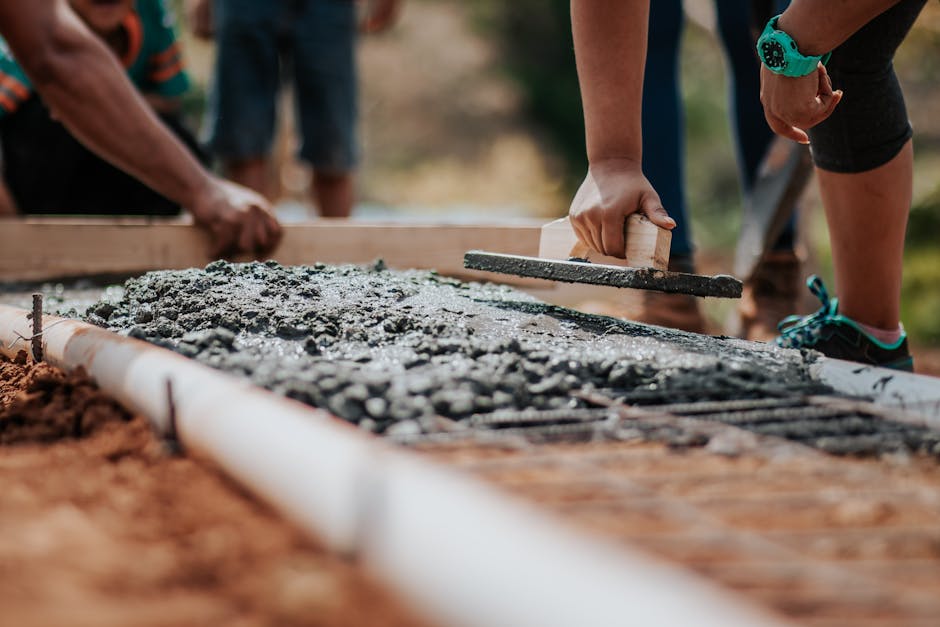Building a Strong Project Management Team
Did you know that nearly 70% of projects fail because of poor team dynamics? That’s a staggering number! Building a strong project management team is crucial for your project’s success. But how do you go about it? Lets dive into the essentials.
Why is Team Building Important in Project Management?

Every project relies on a well-functioning team. A strong team can make or break your project. It drives innovation, efficiency, and collaboration. When team members work well together, they can solve problems faster and make better decisions. But what exactly makes a team strong?
What Makes a Strong Project Management Team?

A strong project management team has several key traits:
- Clear Roles: Everyone should know their responsibilities.
- Open Communication: Team members must feel comfortable sharing ideas and feedback.
- Trust: A trusting environment fosters collaboration.
- Flexibility: The best teams adapt to changes easily.
When these elements are in place, your team can thrive. Lets explore how to build these qualities step by step.
How to Define Roles Clearly?

Imagining your team as a sports team can help. Each player has a specific position to play, like a goalkeeper or forward. In project management, this means defining roles clearly.
Begin by identifying the key roles needed for your project:
- Project Manager
- Team Members
- Stakeholders
- Support Staff
Once you know these roles, clearly outline responsibilities for each. For example, the project manager oversees the project, while team members carry out tasks. This clarity reduces confusion and boosts productivity.
How Can You Foster Open Communication?

Open communication is the backbone of a strong team. It encourages sharing ideas and resolving issues early. Here are some ways to promote it:
- Hold regular meetings: Check in weekly or bi-weekly.
- Use collaboration tools: Apps like Slack or Trello help stay connected.
- Encourage feedback: Create an environment where feedback is valued.
Remember, communication goes both ways. Listen actively to your team. This helps build trust and makes everyone feel valued.
Why is Trust Essential in a Team?
Trust is the glue that holds a team together. When team members trust each other, they are more likely to take risks and share ideas. So, how can you build trust?
- Be transparent: Share information about the project openly.
- Support each other: Celebrate successes and learn from failures together.
- Encourage collaboration: Team-building exercises can strengthen bonds.
As a famous management consultant once said, Trust is the foundation of any relationship. This applies to project teams too.
How to Cultivate Flexibility in Your Team?
Flexibility is a vital trait in project management. Projects often change, and your team must adapt quickly. Heres how to encourage flexibility:
- Promote a growth mindset: Encourage team members to learn and grow.
- Be open to change: Adapt plans as needed to meet project goals.
- Rotate roles: Allow team members to try different positions within the team.
Flexibility not only helps in managing changes but also encourages creativity and innovation.
What Skills Should You Look for in Team Members?
When building your project management team, you want to select members with the right skills. Here are some vital skills to consider:
- Communication Skills: Essential for teamwork.
- Problem-solving Skills: Helps overcome obstacles.
- Time Management: Keeps projects on track.
- Technical Skills: Relevant to the project at hand.
Look for people who possess these skills. They will contribute positively to the teams success.
How Can Team Building Activities Help?
Team building activities are fun and effective. They strengthen relationships and improve collaboration. Here are some popular activities:
- Workshops: Help team members learn new skills together.
- Outdoor activities: Ropes courses or scavenger hunts can build trust.
- Problem-solving challenges: Simulate project scenarios to improve teamwork.
These activities create a sense of camaraderie. They can bring your team closer and improve overall performance.
What Resources Can Support Your Team?
In todays digital world, many tools can help your project management team. Here are some resources to consider:
- Project Management Software: Tools like Asana or Monday.com help track progress.
- Collaboration Tools: Use platforms like Google Workspace for easy sharing.
- Online Training: Invest in courses that enhance team members skills.
Utilizing the right resources can streamline processes and enhance productivity.
How to Measure Team Performance?
Measuring team performance is crucial to understanding how well your team works together. Here are a few methods:
- Set KPIs: Use key performance indicators to track progress.
- Gather Feedback: Regularly ask for input from team members.
- Conduct Reviews: Hold performance reviews to discuss strengths and areas for improvement.
By measuring performance, you can identify what works and what needs adjustment.
What Are Common Misconceptions About Team Building?
Many people have misconceptions about team building. Lets clear up a few:
- Team-building exercises are a waste of time: In reality, they can enhance productivity.
- All team members should be friends: While friendships help, professional respect is more important.
- Only managers need leadership skills: Everyone plays a role in leading the team.
By understanding these misconceptions, you can approach team building more effectively.
What Are the Takeaways for Building a Strong Team?
Building a strong project management team takes effort and intention. Here are the key takeaways:
- Define roles and responsibilities clearly.
- Foster open communication and trust.
- Encourage flexibility and adaptability.
- Invest in team-building activities and resources.
- Measure performance and be open to feedback.
With these strategies, you can create a cohesive team that drives project success.
For more tips on effective project management, check out this PMI article. Remember, the journey to building a strong project management team is ongoing. Stay committed, and youll see the results!



